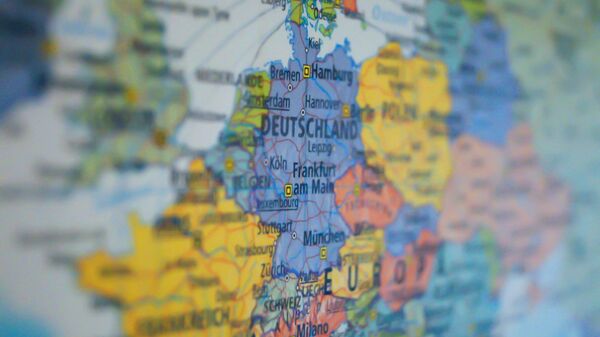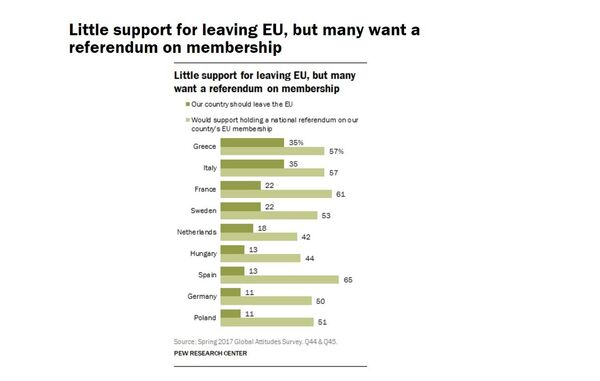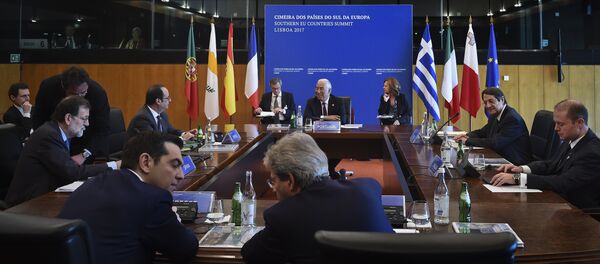Many Europeans back empowering national governments on issues including migration and trade, and they want their own vote on EU membership, according to the latest analysis from the Pew Research Center.
Britain voted to leave the EU in a referendum June 23, 2016, by 52 percent to 48, forcing the resignation of Prime Minister David Cameron and sparking fears that other countries would follow Britain out of the bloc.
Many Europeans want national governments, rather than the EU, to control migration from outside and within the EU https://t.co/sdJVQAGTkD
— Pew Research Center (@pewresearch) 16 June 2017
In spite of rising populism and fears that the Netherlands and then France would fall to the far right in recent elections, those fears have proved unfounded. However, new research from Pew shows that there is growing demand for referendums in a number of countries — particularly those at loggerheads with Brussels for a variety of reasons.
In Spain and Italy, the calls for a referendum- 65 percent and 57 percent respectively — are largely because both countries have suffered from deep austerity measures imposed within the Eurozone. All of the southern Eurozone members have hit back at the pressure from northern members to impose cuts in order to remain within strict debt limits.
'Booze and Women'
The north-south divide came to a head when Eurozone president Jeroen Dijsselbloem made controversial comments about southern EU member states which spend money on "booze and women" instead of cutting costs.
"During the crisis of the euro, the countries of the north have shown solidarity with the countries affected by the crisis. As a Social Democrat, I attribute exceptional importance to solidarity. [But] you also have obligations. You cannot spend all the money on drinks and women and then ask for help," he said.
#Dijsselbloem's 'alcohol and women' subject of university entrance exams #Valencia https://t.co/ZdYlabZHKb
— Keep Talking Greece (@keeptalkingGR) June 7, 2017
France joined the 'Club Med' countries in a mini-summit to show solidarity, which may go some way to explain the high number — 61 percent — in France wanting a referendum.
Social Unrest
Greece — where 57 percent want a referendum- has been hit hardest by the sovereign debt crisis and has been forced to make massive public spending cuts and impose increased and wider taxes, as well as make major reforms to its state pension scheme in return for its third bailout.
Social unrest is running high in Greece and there is growing anger that the Brussels machine will not allow Greece to be given debt relief — writing down some of its debt — or spread Greek's debts over a longer period.
Hungary (44 percent) and Poland (51 percent) are both at loggerheads with Brussels over failing to take part in the migrant relocation program, with Brussels beginning legal proceeding against both countries over the issue.
Poland has come to blows with Brussels over controversial changes to its constitutional tribunal and Hungary is at odds with the EU over the Central European University and foreign NGOs.




